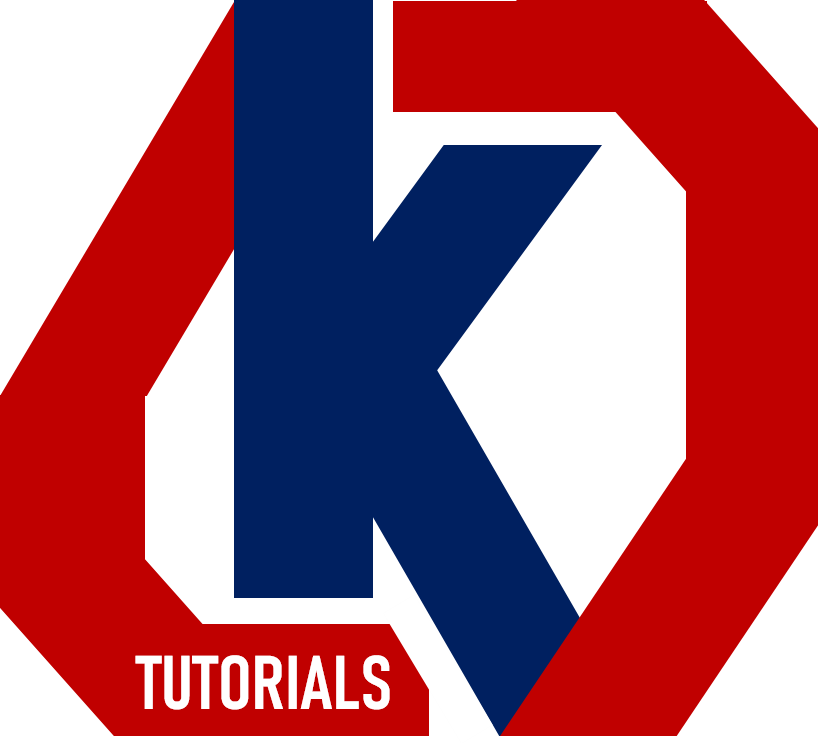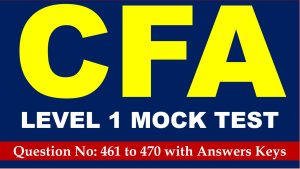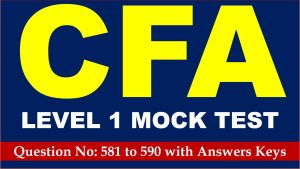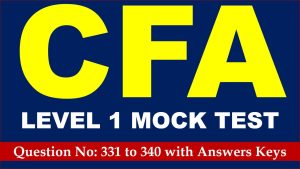Hi CFA Aspirants, welcome to AKVTutorials. Are you preparing for CFA Level 1, 2, 3 exams for making a career in CFA (Charted Financial Analyst). According to CFA Wikipedia, CFA The Chartered Financial Analyst (CFA) program is a postgraduate professional certification offered internationally by the American-based CFA Institute. A candidate who successfully completes the program and meets other professional requirements is awarded the “CFA charter” and becomes a “CFA charter holder”. Therefore, you need CFA Study Notes and CFA Sample Exam Test 9 Questions for Level 1 Answer Keys AMBIPi.
In this article, you will get Free CFA Level 1 Mock Exam Practice Questions.
Free CFA Level 1 Mock Practice Exam Questions Bank
Free CFA Level 1 Practice Question No: 81:
Which of the following is/are true about the Performance Presentation Standards?
I. The PPS are voluntary standards and are not required by AIM to be adopted by a member or a firm.
II. Members need not be in compliance with the PPS to be in compliance with Standard V (B) – Performance Presentation.
III. A member can claim compliance with the PPS only if he has complied with all the mandatory requirements of the PPS.
Option A : II and III only.
Option B : I and III only.
Option C : I, II and III.
Option D : III only.
Show/Hide Answer
Option C : I, II and III.
All of the answers are true of the PPS standards.
CFA Level 1 Exam Question No: 82:
Urvashi Kulkarni is an investment manager with Amritrust Bank, a mid-size investment bank. Urvashi is managing the pension plan assets of Megalith Is, a maker of cloned integrated chips for PCs. Megalith is planning a take-over of Microchip Corp., a fast-growing rival which recently patented a technology which promises to change the face of chip cloning business. The pension plan assets of Megalith consist of 17% of Microchip’s stock. Megalith’s management has decided to buy up to 33% of the stock in a tender offer and transfer the 17% stock holdings of the pension plan to the company investment account. So it instructs Urvashi to sell the Microchip stock to Megalith’s general account at the current market price and invest the cash in other stock as she feels appropriate. Urvashi knows that this action and the subsequent takeover of Microchip will substantially elevate Megalith’s stock price, creating shareholder value. Urvashi should
Option A: refuse to follow the directive since she can be held liable under ERISA if she follows directives issued by the plan sponsor.
Option B: refuse to follow the directive since the action is harmful to the pension plan beneficiaries and Urvashi owes fiduciary loyalty to them, not the plan sponsor.
Option C: follow the management’s directive and sell the stock to the general account.
Option D: none of these answers.
Show/Hide Answer
Option B : refuse to follow the directive since the action is harmful to the pension plan beneficiaries and Urvashi owes fiduciary loyalty to them, not the plan sponsor.
Urvashi owes fiduciary loyalty to the plan beneficiaries, not the management of Megalith. She must not sell Microchip’s stock prior to the tender offer since in doing so, she will be selling the plan assets at a much lower price than would be available once the tender is floated. While such an action benefits Megalith shareholders, it harms the plan beneficiaries. Urvashi owes absolutely no allegiance to Megalith shareholders. Standard IV (B.1) – Fiduciary Duties – and the Topical Study, “Fiduciary Duties.”
Free CFA Level 1 Mock Exam Question No: 83:
Standard III includes which of the following?
Option A: Reasonable Basis and Representations.
Option B: All of these answers.
Option C: Performance Presentation.
Option D: Use of Professional Designation.
Option E: None of these answers.
Option F: Responsibilities of Supervisors.
Show/Hide Answer
Option F : Responsibilities of Supervisors.
Standard III deals with Obligation to Inform Employer of Code and Standards, Duty to Employer, Disclosure of Conflicts to Employer, Disclosure of Additional Compensation Arrangements and Responsibilities of Supervisors.
CFA Level 1 Free Practice Question No: 84:
Andrea, a portfolio manager for XYZ investment Management Company, a registered investment organization that advis investment companies and private accounts, was promoted to that position three years ago. Bates, her supervisor, is responsible for reviewing Andrea’s portfolio account transactions and her required monthly reports of personal stock transactions. Andrea has been using Jonelli, a broker, almost exclusively for portfolio account brokerage transactions.
For securities in which Jonelli’s firm makes a market, Jonelli has been giving Andrea lower prices for personal purchases and higher prices for personal sales than Jonelli gives to Andrea’s portfolio accounts and other investors. Andrea has been filing monthly reports with Bates only for those months in which she has no personal transactions, which is about every fourth month. Which of the following applies/apply?
I. Andrea violated the Code and Standards in that she failed to disclose to her employer her personal transactions.
II. Andrea violated the Code and Standards by breaching her fiduciary duty to her clients.
III. Bates violated the Code and Standards by failing to enforce reasonable procedures for supervising and monitoring Andrea in Andrea’s trading for her own account.
Option A: II only.
Option B: II and III only.
Option C: III only.
Option D: I only.
Option E: I and III only.
Option F: I and II only.
Option G: I, II and III.
Show/Hide Answer
Option G : I, II and III.
This question involves three Standards. Andrea, the portfolio manager, has been obtaining lower prices for her personal securities transactions than she gets for her clients, which is a violation of Standard IV (B. 1), Fiduciary Duties. In addition, she violated Standard II (B), Professional Misconduct, by failing to adhere to company policy and hiding her personal transactions from her firm. Andrea’s supervisor, Bates, violated Standard III (E), Responsibilities of Supervisors, by failing to enforce the procedures for reporting personal trading. Therefore, Statements I, Il and Ill are all correct.
Free CFA Practice Question No: 85:
Standard II of the Standards of Professional Conduct deals with Relationships with and Responsibilities to _______.
Option A: AIMR.
Option B: Clients.
Option C: the Profession.
Option D: Employers.
Option E: None of these answers.
Show/Hide Answer
Option C : the Profession.
Standard II of the Standards of Professional Conduct deals with Relationships with and Responsibilities to the Profession.
CFA Level 1 Sample Question No: 86:
According to Standard IV (B.7), Disclosure of Conflicts, service on a board of directors poses which of the following as a basic conflict of interest?
Option A: Fiduciary duties owed to clients and the duties owed to shareholders.
Option B: None of these answers.
Option C: All of these answers.
Option D: Investment personnel who serve as directors may receive securities or the option to purchase securities of the company as compensation for serving on the board.
Option E: Opportunity to receive material nonpublic information.
Show/Hide Answer
Option C : All of these answers.
Under Standard IV (B.7), service as a director poses all three statements as basic conflicts of interest. Hence, when members providing investment service serve also as directors, they should be isolated from those making investment decisions by the use of Fire Walls or similar restrictions.
Free CFA Level 1 Quiz Question NO: 87:
Standard IV (B.3) – Fair Dealing requires AIMR members to treat all clients and prospects fairly when disseminating investment information or recommendation.
Which of the following is/are implied by this?
I. All clients and prospects must be treated equally i.e. the investment recommendation should be disseminated to all the clients without prejudice.
II. Amongst the eligible clients, no favoritism should be shown i.e. small investors should be treated the same as large investors.
III. All eligible clients must be informed about new opportunities simultaneously.
Option A: I and II only.
Option B: II and III only.
Option C: II only.
Option D: I, II and III.
Show/Hide Answer
Option C : II only.
Standard IV (B.3) – Fair Dealing requires AIM members to treat all clients and prospects fairly when disseminating investment information or recommendation.
However, “fairly” does not mean “equally” for one major reason: each client has different investment needs. A recommendation, if not suitable for a particular client’s risk-reward profile, should not be communicated to that client! So care must be taken while disseminating investment recommendations to individual clients to ensure suitability. Therefore, (I) is incorrect. Of the eligible clients, as long as there is no bias shown favoring one client over the other, the standard does not require that they be informed simultaneously; indeed this is almost impossible in most cases because of time lags in communication channels – mail, phone, fax, etc. So (III) is incorrect.
Free CFA Level 1 Quiz Question NO: 88:
In the presentation of real estate performance, disclose any changes in _____, including unrealized gains and losses. changes in
Option A: accounting.
Option B: investment earnings.
Option C: valuation.
Option D: audit practices.
Option E: cash flow.
Show/Hide Answer
Option C : Valuation.
Questions have arisen about the effects of real estate appraisals on recognizing gains or losses in value in performance periods. Consistent with industry practices, the AIMR-PPS require that changes in valuation, including unrealized gains and losses, be recognized in the reporting period that includes the effective date of the appraisal.
Free CFA Practice Question No: 89:
Relationships with and Responsibilities to Clients and Prospects are dealt with under:
Option A: Standard I.
Option B: Standard III.
Option C: None of these answers.
Option D: Standard II.
Option E: Standard V.
Option F: Standard IV
Show/Hide Answer
Option F: Standard IV
Relationships with and Responsibilities to Clients and Prospects are dealt with under Standard IV.
CFA Mock Exam Free Question No: 90:
Mike Jordan recently met his old friend, Charlie Barklee, who’s an accomplished statistician. Charlie showed him his new model for predicting stock prices and after considerable discussion, Mike was convinced the model was a viable alternative to his current methodology for picking stocks. To test it, he downloaded historical data from a well-known statistical data provider’s web site. The tests indicated that some parts of the model needed fine tuning, which Mike implemented himself, without Charlie’s help. Mike:
Option A: cannot circulate the model since it is not publicly available.
Option B: can show his clients the model, without any special disclosures, because all of the tests were done by him with publicly available data.
Option C: none of these answers.
Option D: must acknowledge Charlie’s contribution. Otherwise, he would be in violation of the code of ethics and be subject to disciplinary action from AIMR.
Show/Hide Answer
Option D : must acknowledge Charlie’s contribution. Otherwise, he would be in violation of the code of ethics and be subject to disciplinary action from AIMR.
Standard II (C) – Prohibition against Plagiarism.



